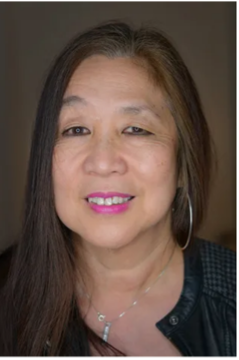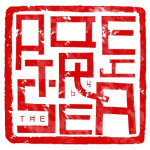
It’s with great excitement that we look forward to welcoming Marilyn Chin as Keynote for the May 23-26 Conference this year. Apart from her exceptional renown as a poet, Chin is also esteemed as a translator of Chinese, Vietnamese, and (along with a co-translator) Japanese poetry.
Talking about her book Hard Love Province in a 2015 interview, Chin elucidated some of her ideas about form in poetry: “Lots of poets shy away from form or shy away from musicality, so I wanted the book to be based on the elegiac quatrain, which is mimetic of Eastern and Western quatrains, so you can hear Chinese poetry but you can also hear Tennyson. “
In discussing the haiku form, Chin says, “There is this idea that the form is kind of saccharine and everybody’s kind of co-opted the haiku, like Hallmark greeting cards, so it has become a cliché, but I work a lot with traditional forms. . . . I shied away from the five-seven-five caesura pattern and used different sonic patterns with different stresses. Some of the lines are very heavily stressed, so they sound kind of Whitman-esque, but at the same time they have the feeling of the ancient haiku and are also very subversive and even perverse. . . .
“Sometimes I think we’re a little too respectful of the ancients. . . . We feel like everything’s been done, but that’s not true. It’s up to us to complicate things and make things fun for the reader and for ourselves.”
In another interview, Chin elaborated further on her haikus: “I love the limerick. The secret to some of my quasi-Chinese quatrains is that I inserted limerick music into them. That was the secret spice that made some of those quatrains sassy. People say, ‘The limerick, how stupid, how silly.’ Never look at a form or a convention and spit on it. Never. Because you never know when the muse may need to use it. When I was in my twenties, I said I would never write in rhyme and meter. Hell, no. Only fascists write in rhyme and meter. And look at me now—sometimes I write in rhyme and meter and I just love it.”
Marilyn Chin will join us at the Wednesday evening Banquet before delivering her Keynote reading and remarks. Participants will have a chance to meet the poet and purchase signed copies of her books. Then, on Thursday, she will engage in “A Conversation with Marilyn Chin,” conducted by the poet, editor, and educator Allison Joseph.
For more on Marilyn Chin, check out her website. Register for the Conference on our Registration page. Questions or comments? Email us on the Contact page.
